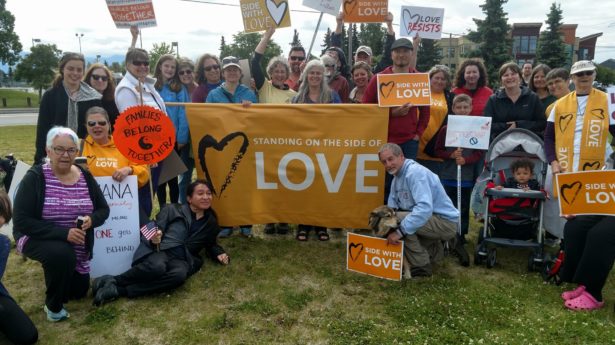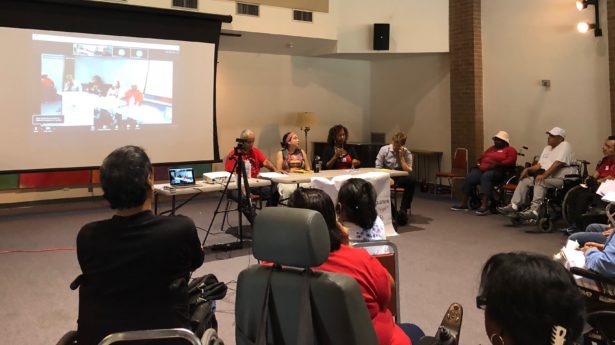The Unitarian Universalist Service Committee advances human rights through grassroots collaborations.
Partnering for Human Rights in the Solomon Islands
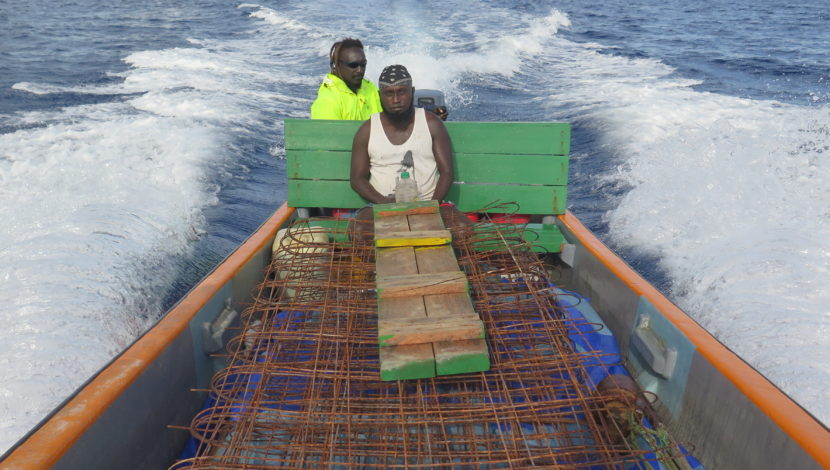
By on October 1, 2018
For people living in remote coastal areas of the South Pacific’s Solomon Islands, the threats of climate change have become a reality. The Unitarian Universalist Service Committee has partnered with Ecological Solutions to help raise awareness about the climate-related human rights issues residents of the Choiseul Island villages of Nuatabu, Nusahope, and Wagina are facing, elevate their voices and expertise on this issue, and advocate for government support.
About 25 homes and 120 lives were lost due to a 2012 tidal wave that struck Nuatabu. Villagers displaced by the disaster relocated to different areas in Choiseul Island, including Kanaka village. In addition to helping families rebuild their homes in Kanaka, Ecological Solutions is supporting their advocacy for assistance from the provincial and national governments. Nuatabu and Kanaka are both native-owned lands.
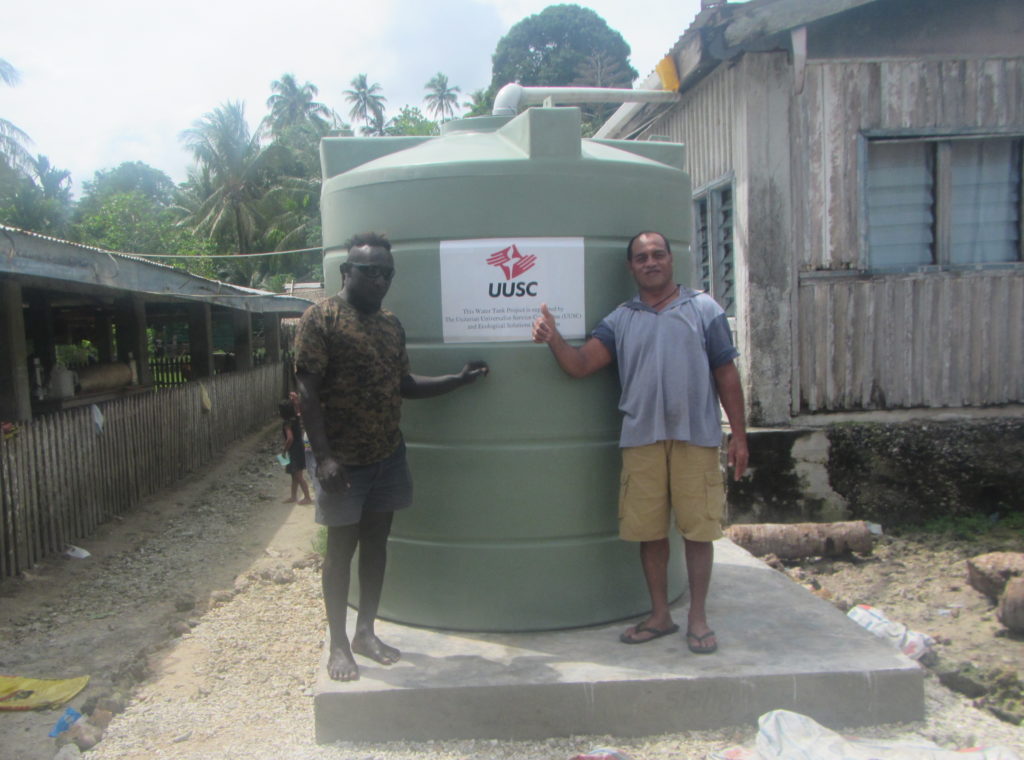
In addition to displacing communities, the slow-onset impacts of climate change are having impacts on the human right to retain one’s culture, heritage, and traditions. Because it is at sea level, the island of Nusahope experiences flooding during high tide; this is not sustainable for long-term residency. People who have relocated from Nusahope return to the village on special occasions that honor social and traditional bonds with the land they can no longer safely inhabit.
Ecological Solutions’ work validates that human rights protections amid climate-forced displacement requires sustainable, community-led development to provide the physical infrastructure communities need to protect themselves and maintain their livelihoods.
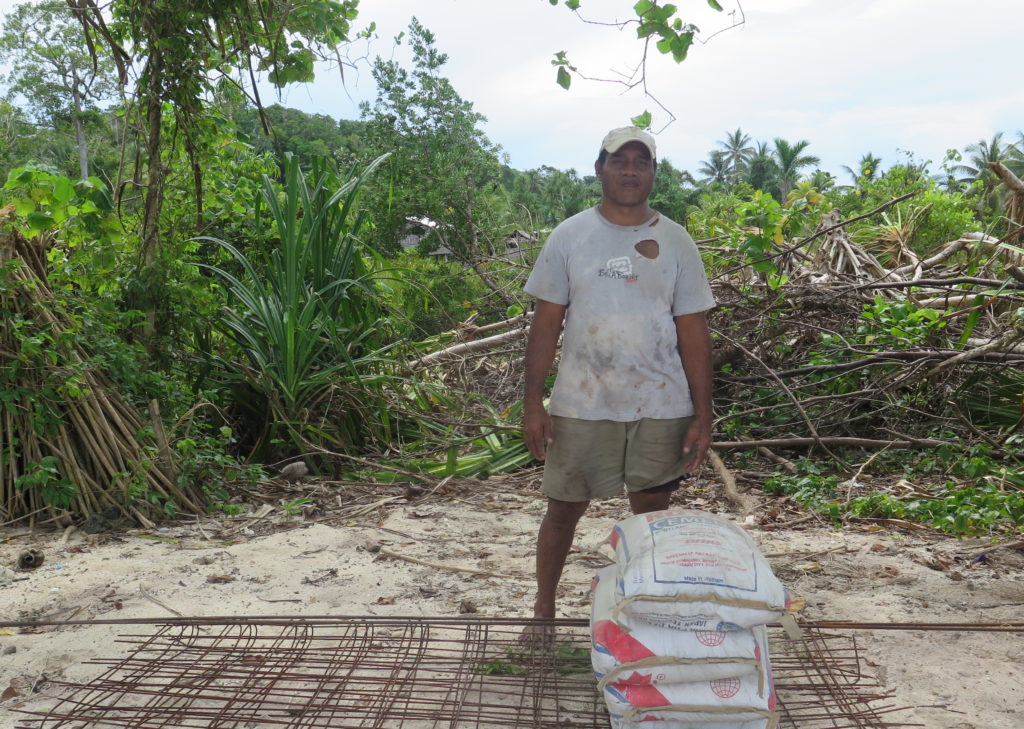
Although the global community has failed to take the necessary steps to stop the human rights crises caused by climate change, communities like the Nuatabu, Nusahope, and Wagina, are taking action now. Let people on the frontlines of climate-forced displacement know they are not alone in this effort by sending a personal message of solidarity. Your message will be delivered directly to representatives from these communities in early October during the First Peoples’ Convening on Climate-Forced Displacement.
Photos from Ecological Solutions.
